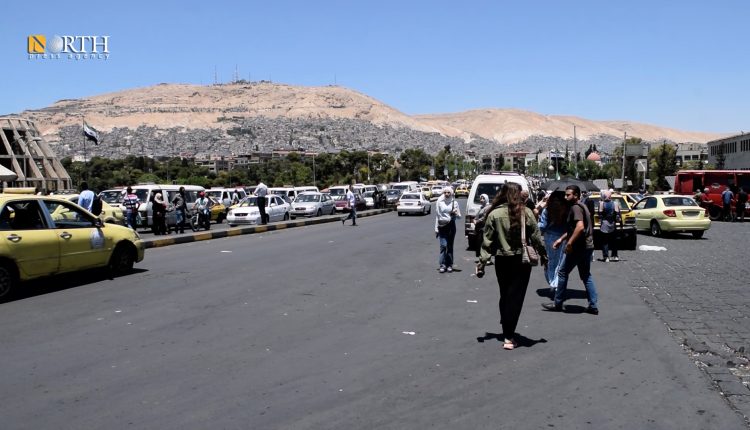By Norman al-Abbas
DAMASCUS, Syria (North Press) – Amid Syria’s deepening economic crisis, the dismissal of hundreds of public sector employees following the collapse of the former regime is fueling mounting concerns—not only because many lost their sole source of income, but also because they now face legal action for failing to repay outstanding loans, further compounding their hardships.
Since December 2024, the Syrian transitional government has issued multiple decisions removing thousands of employees across various state institutions.
Dismissals without alternatives
Lawyer Bassam al-Sheikha described the mass dismissals as a clear abuse of power, particularly when no alternative employment or compensation has been provided. “What crime has a person who served for 25 years committed to be deprived of their livelihood—and at the same time be asked to repay loans they took based on their salary?” he asked.
He called the decision unjust, urging authorities to reinstate employees who were not involved in human rights violations, allowing them to meet their legal and financial obligations within a stable framework.
Ismail Deyoub, a Damascus resident, criticized the lack of foresight in the decision, explaining that job opportunities are scarce, and many dismissed employees lack the qualifications to enter the limited private sector or attract investment opportunities.
“If an employee is dismissed and there are no job opportunities and the country is in the midst of an economic crisis with no new investments, how can that person be expected to repay loans?” he asked, advocating for a grace period or alternative income sources.
These developments raise pressing questions about the fairness of the government’s approach and its responsibility to offer humane, realistic alternatives to affected individuals.
Overlooking humanitarian dimension
Delma Khazoun, a doctor from Damascus, said the decision is unjust under current economic conditions, particularly when Syria has not yet achieved any significant economic recovery. She said the government is making the crisis worse by stripping citizens of their basic rights while still demanding financial obligations.
Khazoun also criticized what she sees as preferential treatment for corrupt officials and influential businessmen, contrasting it with the pressure placed on ordinary workers.
Meanwhile, Jaafar Khaddour, another Damascus resident, called the seizure of dismissed employees’ properties an “unjust decision,” noting that many of them do not own anything to begin with. He also criticized the decision-making process, saying that the lack of transparency and justification reflects weak governance. He called for fairer alternatives, including job creation and realistic solutions before imposing punitive measures.
Absence of comprehensive economic policy
Taysir al-Masri, professor of economics at the University of Damascus, emphasized that the Ministry of Finance failed to consider the social impact of its loan recovery demands.
He attributed the flawed decision to the absence of a centralized institution for coordinating economic and social policy.
“Unfortunately, every minister in the current government seems to make decisions independently. This results in legal contradictions and administrative blunders. Ultimately, it is the citizen who suffers the consequences.”
Al-Masri acknowledged the state’s right to recover public funds, but stressed that this must be balanced with the humanitarian realities of dismissed employees. “You cannot demand repayment from someone who has lost the income used to secure the loan in the first place,” he argued.
He also warned that loan delays would increase financial penalties, worsening the debt burden on struggling citizens. “The loans were granted based on salary guarantees. Once that salary is gone, holding the employee fully responsible is unjust,” he added.
Al-Masri called on the Ministry of Finance to rethink its strategy and coordinate more closely with institutions focused on social welfare. “Solutions must be holistic—banks, ministries, and the government must share responsibility. The state is accountable to its people and must respond to the economic crisis with fairness and empathy, not with punitive measures that deepen the suffering,” he concluded.
According to observers, the current wave of dismissals and aggressive loan collection efforts reflect a broader flaw in Syria’s governance approach—one that lacks adequate planning, coordination, and regard for social consequences. As the government seeks to recover state funds, it risks ignoring the very real struggles of thousands of families left without income and facing legal threats beyond their means to resolve.

